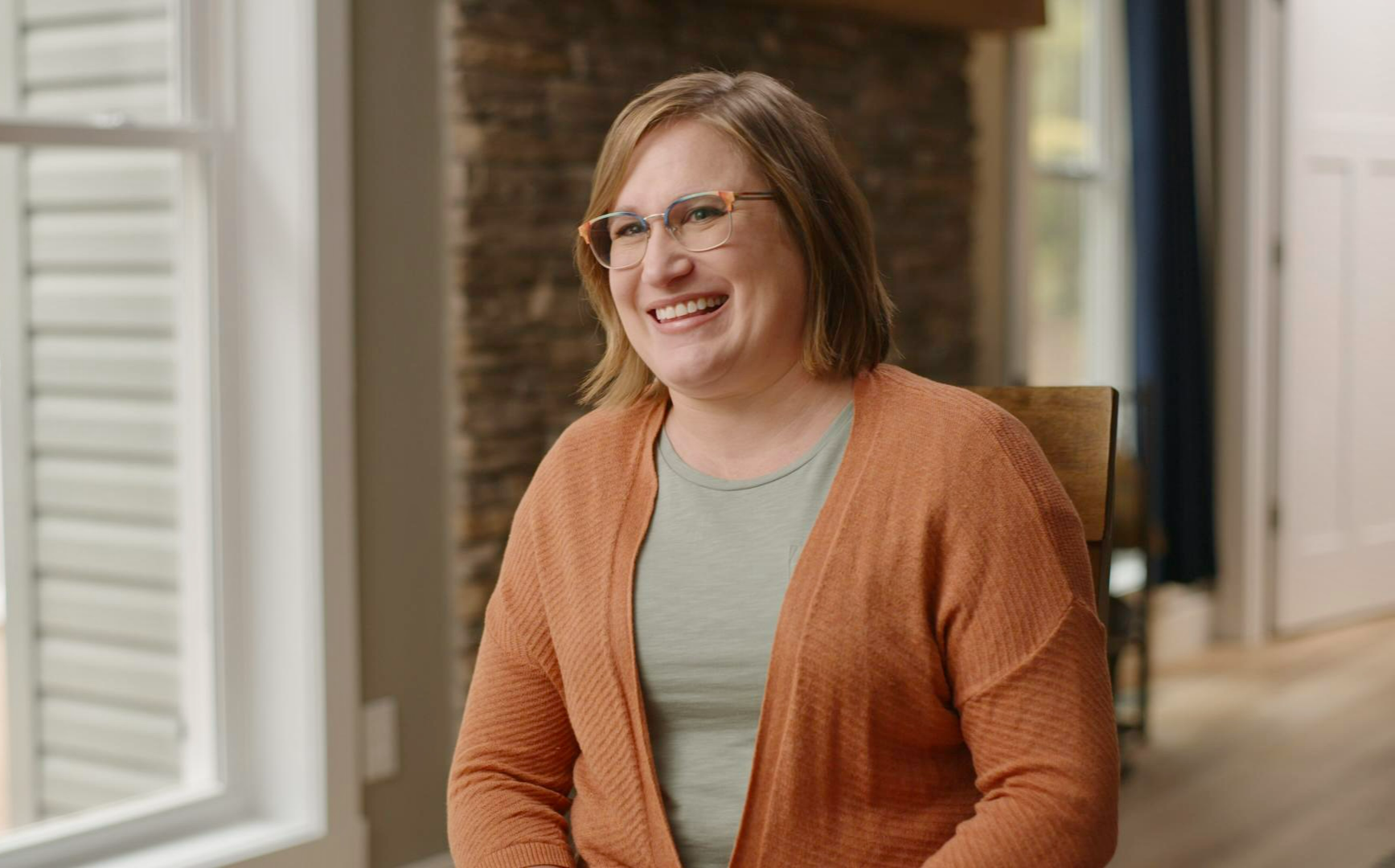Andrea “Andi” Hasley, 43, of Morgantown, would describe herself as a rule follower. For as long as she can remember, she has done what she was supposed to do in all aspects of her life, including health and wellness – something her mother ingrained in her.
“My mom always said, ‘Do not put off what can be fixed,’” Hasley said.
In line with this principle, Hasley conducted monthly self-breast examinations at home, never feeling a lump or change in anatomy. However, true to her nature, she called to schedule a mammogram when she turned 40 in accordance with breast cancer screening guidelines.
In June 2020, Hasley received a call the day after her mammogram informing her that there were abnormalities on her scan. Within days, she was seen at the WVU Cancer Institute at Berkeley Medical Center in Martinsburg, where she was diagnosed with Stage 0 ductal carcinoma in situ, also known as DCIS.
Because the cancer was found at such an early stage, Hasley’s prognosis was good, and the treatment plan was less intense than it would have been if the cancer had been discovered at a later stage. She had a partial mastectomy followed by radiation. Hasley had to attend all appointments by herself due to COVID-19 restrictions. “My husband wasn’t even allowed in the hospital when I went in for my surgery,” she explained.
One thing that helped the couple through this difficult time was MyWVUChart, the WVU Medicine online patient portal. Hasley said access to her electronic medical record (EMR) through MyWVUChart allowed her husband to stay informed with her care, test results, and even provided him an outlet to ask questions directly to her providers. It also eliminated the burden she felt of trying to understand and remember everything on her own.
Hasley experienced another benefit of the EMR when she and her family moved from Martinsburg to Morgantown and all her medical information was readily accessible for Hannah Hazard-Jenkins, MD, director of the WVU Cancer Institute and breast cancer surgeon, who now manages her care at the Mary Babb Randolph Cancer Center.
“Stories like Andi’s highlight the great importance of screening to catch breast cancers at the earliest, and most treatable, stage possible. Early detection can increase treatment options for patients and lead to better patient outcomes,” Dr. Hazard-Jenkins said. “The WVU Cancer Institute is dedicated to providing patients with resources for all stages of breast cancer care.”
Now in maintenance care, Hasley sees Hazard-Jenkins every six months for follow-up appointments and imaging. She takes a daily medicine and receives injections every 28 days as part of her adjuvant therapy, a treatment that targets cancer cells that original treatment may not have destroyed.
Hasley remains grateful for all the care she has received and holds her care team in high regard.
“They are just such special humans. They don’t just care about you during treatment. They care about you for the rest of your life,” she said.
She has taken a “pay it forward” approach to breast cancer survivorship. When she relocated to Morgantown, she took a job with Mountains of Hope, West Virginia’s cancer coalition, working with the WVU Cancer Institute’s Cancer Prevention and Control team. She and her family were featured on the WVU Cancer Institute podcast Living Beyond Cancer, and she co-hosted a few episodes as well.
Now working as the assistant director of development at the WVU College of Creative Arts, Hasley still welcomes any opportunity she can to spread awareness and education. “If I can help just one person, that will be enough,” Hasley said. The main thing she hopes others take away from her story is the importance of breast cancer screening.
“If I hadn’t gone when I did, my treatment, long-term care, and prognosis all could have looked different,” she said. “We can do so much now with cancer. The things we can do are astounding, but you can’t fix what you don’t know about.”
